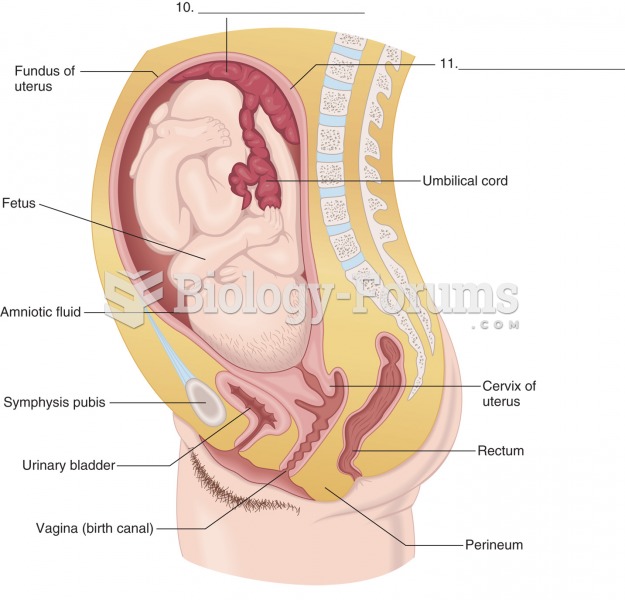|
|
|
Always store hazardous household chemicals in their original containers out of reach of children. These include bleach, paint, strippers and products containing turpentine, garden chemicals, oven cleaners, fondue fuels, nail polish, and nail polish remover.
Egg cells are about the size of a grain of sand. They are formed inside of a female's ovaries before she is even born.
The term bacteria was devised in the 19th century by German biologist Ferdinand Cohn. He based it on the Greek word "bakterion" meaning a small rod or staff. Cohn is considered to be the father of modern bacteriology.
Approximately 25% of all reported medication errors result from some kind of name confusion.
Medication errors are three times higher among children and infants than with adults.







